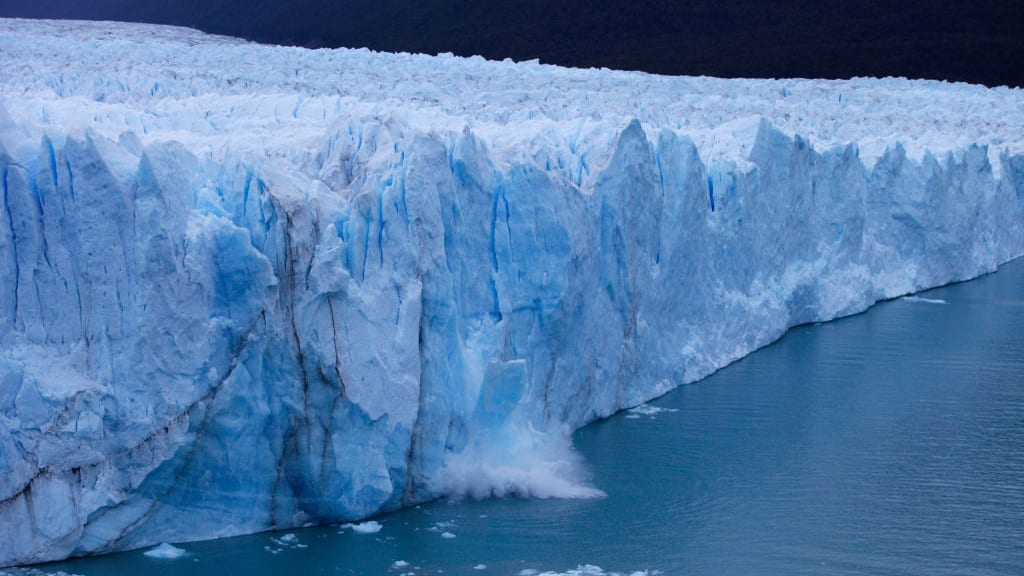New study finds two-thirds of the world's glaciers could be lost by 2100


A free daily email with the biggest news stories of the day – and the best features from TheWeek.com
You are now subscribed
Your newsletter sign-up was successful
Up to two-thirds of the world's glaciers could disappear by the end of the century, as they are melting faster than scientists had thought, a new report published Thursday in the journal Science said.
The study also found that if global leaders take quick action and future warming is slowed down to only a few more tenths of a degree, slightly less than half of the glaciers will go extinct, The Associated Press reports.
For the study, scientists used computer simulations to predict what would happen to the world's 215,000 land-based glaciers under different temperature increases, calculating how many of the glaciers would melt and how that would increase sea levels. Under current conditions, the world is set to reach a 4.9 degree Fahrenheit temperature rise since pre-industrial times, meaning that by 2100, 32 percent of the world's glacier mass will disappear and 68 percent of glaciers will be lost. Under the best case scenario, the melting ice will add 3.5 inches to the world's sea level, and under the worst, it would add 6.5 inches.
The Week
Escape your echo chamber. Get the facts behind the news, plus analysis from multiple perspectives.

Sign up for The Week's Free Newsletters
From our morning news briefing to a weekly Good News Newsletter, get the best of The Week delivered directly to your inbox.
From our morning news briefing to a weekly Good News Newsletter, get the best of The Week delivered directly to your inbox.
"No matter what, we're going to lose a lot of the glaciers," study lead author David Rounce, a glaciologist and engineering professor at Carnegie Mellon University, told AP. "But we have the ability to make a difference by limiting how many glaciers we lose."
Glaciers provide drinking and agricultural water and hydropower, and support "billions of people," National Snow and Ice Center Deputy Lead Scientist Twila Moon told AP. They are also part of their individual landscapes in places like Austria and Alaska and Iceland, and are what make them "so special," National Snow and Data Ice Center Director Mark Serreze said. "As they lose their ice in a sense they also lose their soul."
A free daily email with the biggest news stories of the day – and the best features from TheWeek.com
Catherine Garcia has worked as a senior writer at The Week since 2014. Her writing and reporting have appeared in Entertainment Weekly, The New York Times, Wirecutter, NBC News and "The Book of Jezebel," among others. She's a graduate of the University of Redlands and the Columbia University Graduate School of Journalism.
-
 Political cartoons for February 16
Political cartoons for February 16Cartoons Monday’s political cartoons include President's Day, a valentine from the Epstein files, and more
-
 Regent Hong Kong: a tranquil haven with a prime waterfront spot
Regent Hong Kong: a tranquil haven with a prime waterfront spotThe Week Recommends The trendy hotel recently underwent an extensive two-year revamp
-
 The problem with diagnosing profound autism
The problem with diagnosing profound autismThe Explainer Experts are reconsidering the idea of autism as a spectrum, which could impact diagnoses and policy making for the condition
-
 How climate change is affecting Christmas
How climate change is affecting ChristmasThe Explainer There may be a slim chance of future white Christmases
-
 Blue Origin launches Mars probes in NASA debut
Blue Origin launches Mars probes in NASA debutSpeed Read The New Glenn rocket is carrying small twin spacecraft toward Mars as part of NASA’s Escapade mission
-
 Why scientists are attempting nuclear fusion
Why scientists are attempting nuclear fusionThe Explainer Harnessing the reaction that powers the stars could offer a potentially unlimited source of carbon-free energy, and the race is hotting up
-
 Dinosaurs were thriving before asteroid, study finds
Dinosaurs were thriving before asteroid, study findsSpeed Read The dinosaurs would not have gone extinct if not for the asteroid
-
 Canyons under the Antarctic have deep impacts
Canyons under the Antarctic have deep impactsUnder the radar Submarine canyons could be affecting the climate more than previously thought
-
 SpaceX breaks Starship losing streak in 10th test
SpaceX breaks Starship losing streak in 10th testspeed read The Starship rocket's test flight was largely successful, deploying eight dummy satellites during its hour in space
-
 NASA is moving away from tracking climate change
NASA is moving away from tracking climate changeThe Explainer Climate missions could be going dark
-
 Rabbits with 'horns' sighted across Colorado
Rabbits with 'horns' sighted across Coloradospeed read These creatures are infected with the 'mostly harmless' Shope papilloma virus
